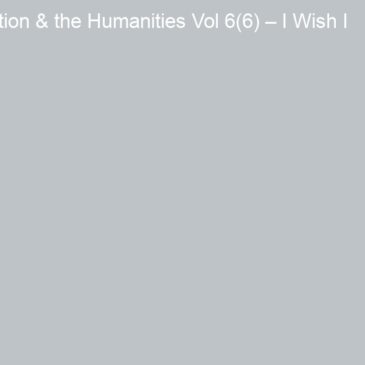The Oxford English Dictionary (OED) defines “aphorism” (second definition) as “Any principle or precept expressed in few words; a short pithy sentence containing a truth of general import; a maxim.” Arguably, much of peoples’ attitudes and knowledge are reflected in and derive from such aphorisms. However, such sayings might gain broad recognition and acceptance without containing a truth. This week, Addiction and Humanities reviews several selections from The Quotable Gambler (Paul Lyons, 1999) to determine how they map onto current knowledge and practices related to gambling.
The more it changes…
Gambling promises the poor what property performs for the rich: something for nothing.- George Bernard Shaw
Mr. Shaw would not be surprised by the number of states that earmark some casino fees and revenues for reducing property taxes.
Something for nothing
A dollar picked up in the road is more satisfaction to us than the 99 which we had to work for, and the money won at Faro or in the stock market snuggles into our hearts in the same way. ~ Mark Twain
In contrast, Aronson & Mills (1959) found that people tend to attribute a greater value to things they put effort into acquiring or achieving. They labeled the effect “effort justification.” Perhaps gamblers cognitively distort winning as a result of their efforts.
Controlling chance
You cannot beat a roulette table unless you steal money from it. ~ Albert Einstein
A gambler is nothing but a man who makes his living out of hope. ~William Bolitho
Despite Einstein’s admonition, some research demonstrates that people diagnosed with an a gambling disorder have higher than usual belief in their ability to control chance (de Stadelhofen, Aufrère, Besson, & Rossier, 2009).
Maybe it’s not about the money
There are two great pleasures in gambling: that of winning and that of losing. ~ Old French Saying
The subject of gambling is all encompassing. It combines man's natural play instinct with his desire to know about his fate and his future. ~ Franz Rosenthal
Gambling satisfies the need for stimulation and the discharge of impulses. It also distracts from stress (Clarke et al, 2007). Research has demonstrated that gambling provoked by excitement-seeking is associated with other psychological problems (Pantalon, Maciejewski, Desai, & Potenza, 2008).
But it is a slippery slope
They start gambling for fun, continue for greed, and finally the game becomes a passion. ~ Francois-Paul Brueys D'Aigalliers
The first steps on the slope
One of the worst things that can happen to you in life is to win a bet on a horse at an early age. ~ Danny Mcgoorty
Clinicians identify early wins as a risk factor for developing gambling-related addiction problems. More work needs to be done to determine whether there is much truth to Mcgoorty’s claim.
With untoward consequences
All the world loves the game, and most sensible people willingly resign themselves to it until they see violence, deception, confusion, loss of money and time paired with it; until they understand that they can spend all their life for it. ~ Montesquieu.
Words of advice
If you must play, decide upon three things at the start: the rules of the game, the stakes, and the quitting time. Chinese Proverb
It would appear that suggestions for responsible gambling have been around for many years.
Conclusion
Perhaps you have employed quotes from others or constructed your own aphorisms about the recognition and remediation of addiction. Please forward those sayings with a description of their utility to the BASIS so that we can compile them into an issue for the benefit of our readers.
-Julia Braverman
Please use the comment link below to provide feedback on this article.
References
Aronson, E., & Mills, J. (1959) The effect of severity of initiation on liking for a group. Journal of Abnormal and Social Psychology, 59, 177-181
Clarke, D., Tse, S., Abbott, M., Townsend, S., Kingi, P., & Manaia, W. (2007). Reasons for starting and continuing gambling in a mixed ethnic community sample of pathological and non-problem gamblers. International Gambling Studies, 7(3), 299-313.
de Stadelhofen, F., Aufrère, L., Besson, J., & Rossier, J. (2009). Somewhere between illusion of control and powerlessness: Trying to situate the pathological gambler's locus of control. International Journal of Clinical and Health Psychology, 9(1), 117-126.
Lyons, P. (1999). The Quotable Gambler. New York, New York, The Lyons Press.
Pantalon, M., Maciejewski, P., Desai, R., & Potenza, M. (2008). Excitement-seeking gambling in a nationally representative sample of recreational gamblers. Journal of Gambling Studies, 24(1), 63-78.




